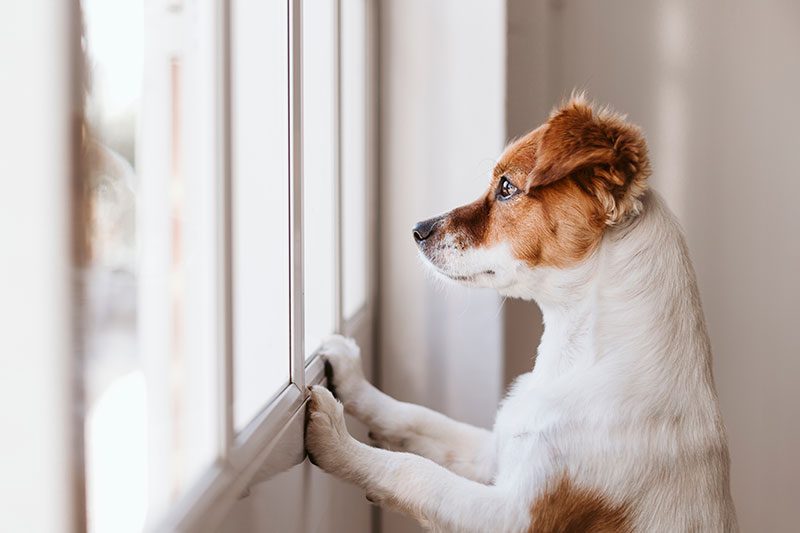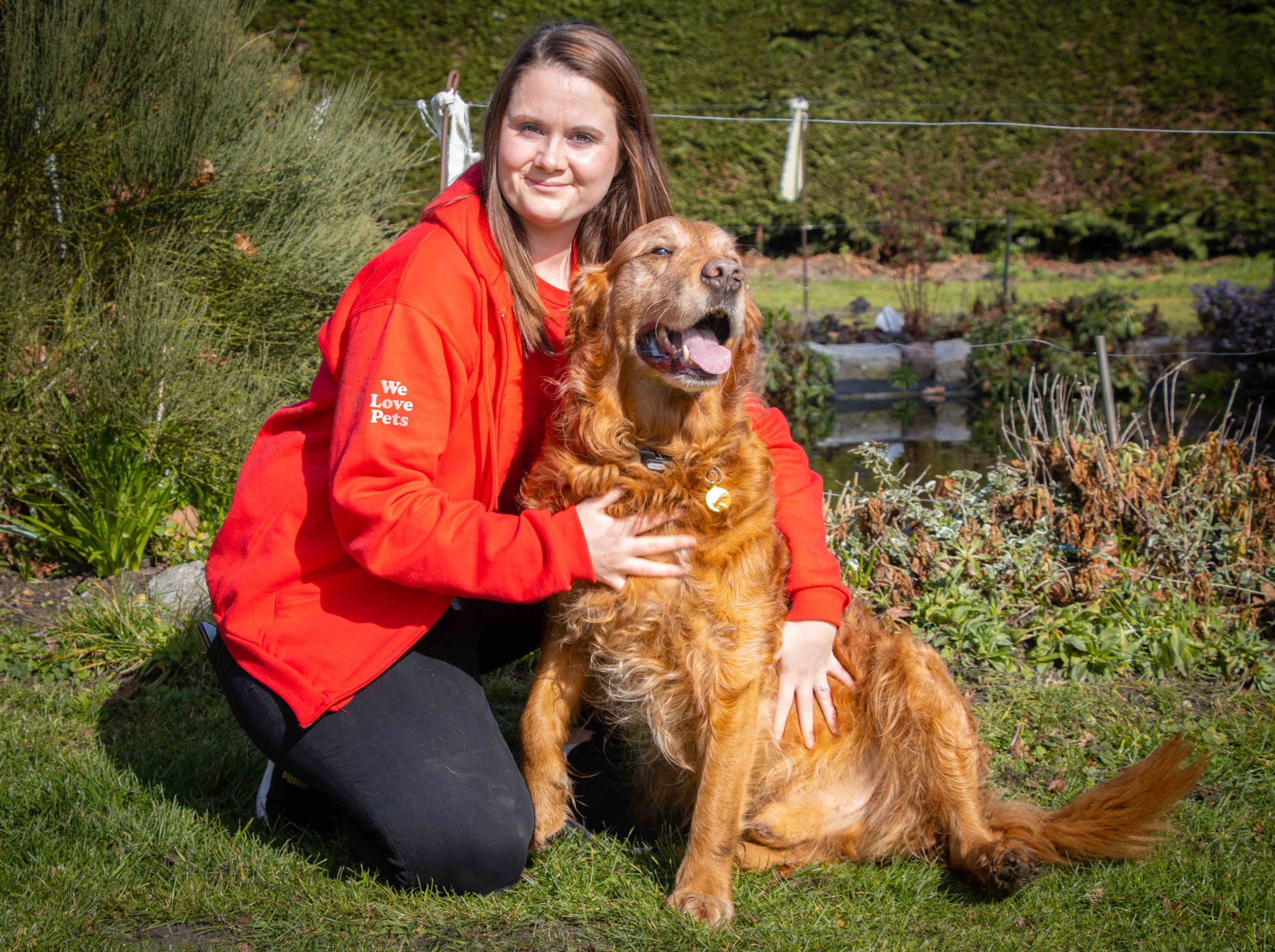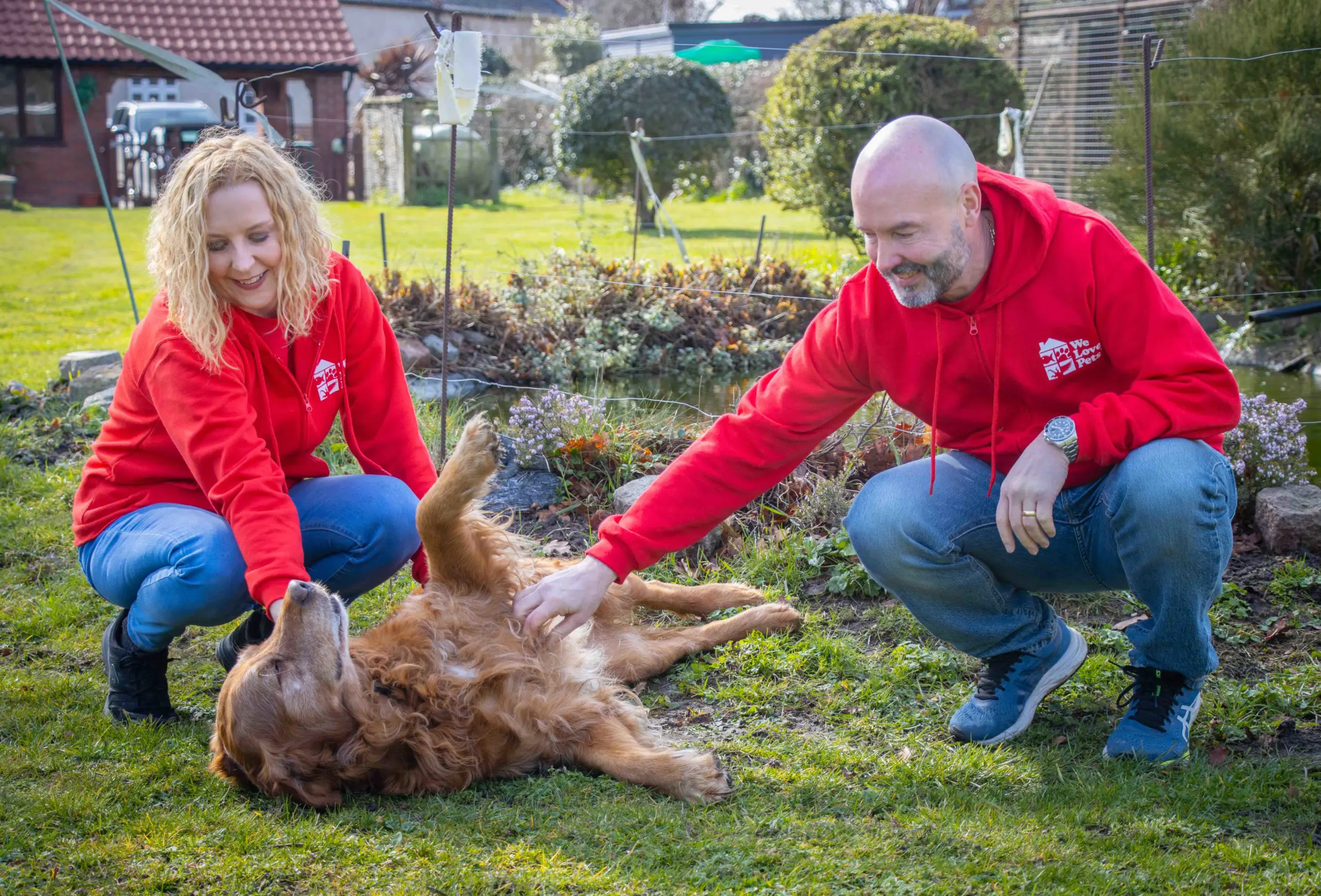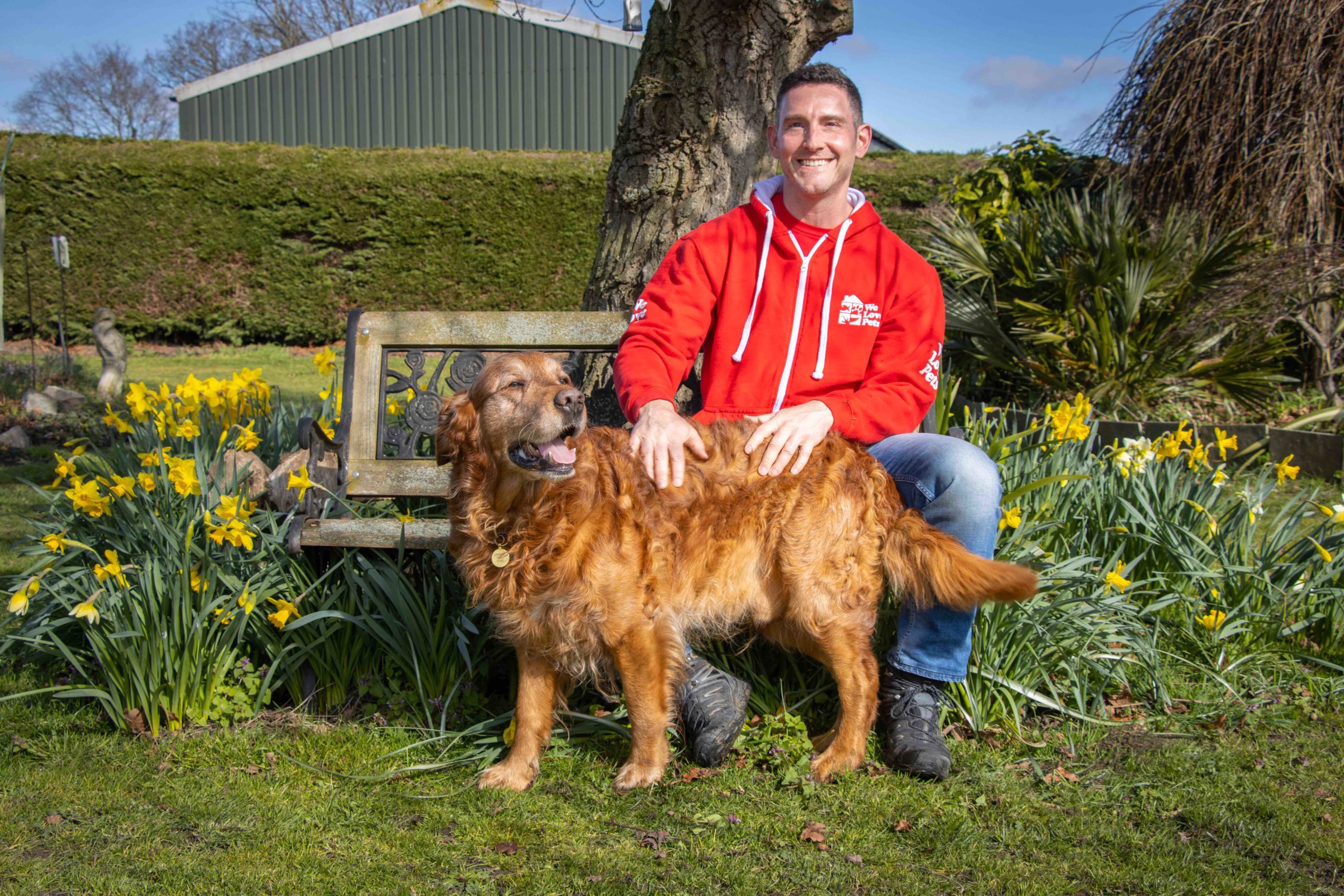Separation anxiety.
Before I start delving into this issue I want to make it very clear that this is a behavioural issue and if your dog has severe separation anxiety I recommend finding a registered behaviourist that has a strong track record helping dogs with this problem. However, if your dog has mild to moderate symptoms I have put together a list of things you can try to help your dog.
First step, if you think your dog has separation anxiety you need to take him to a vet to check there is not an underlying medical issue that’s causing your pooch to act that way. Remember being sick or sore always makes everything else seem worse for us and it’s the same for our dogs.
The next thing to consider is exercise, your dog will be more anxious if he’s not had a chance to burn off any energy before you leave for work. Remember exercise = endorphins = happier boy! Try to get in a good walk before you go to work, a walk/play at lunch and again in the evening. Some breeds need more exercise than others but they all need the stimulation of the great outdoors.
Next, consider your dog’s diet. He may be happy wolfing down his current food, but some brands are better than others. Many cheaper brands contain a lot of additives and preservatives which lead to your dog acting like the equivalent of a toddler on smarties! Leave a hyper doggie like this with nothing to do and carnage will ensue. Look for food with natural ingredients, that is breed or size specific but please remember even if you have a working dog, unless you are working it, it does not need working dog food! This is designed for dogs doing physical activity all day and in most cases will cause pet dogs to be hyperactive and or overweight because they don’t expend anywhere near the energy it provides.
Give your dog a safe space to sleep, it must be just his space so not the sofa or your bed. Do not get in his space or move it. He needs to know he has a space he can go when he’s tired or stressed.
Make sure your dog has environmental enrichment when you leave him alone, aka something to do/ something to chew! So, Kongs, treat balls, puzzle games, lick mats etc. If your dog doesn’t seem interested leave a trail of high value treats (cheese, ham, sausage etc) leading to their toys and let them start it before you go.
If your dog barks and is panicked by external noise, leave on a radio/tv at mid volume so that they are accustomed to constant low-level noise and comforted by it. It will blot out a lot of external sounds and decrease his anxiety. If possible have one source upstairs and one source downstairs tuned to different stations to minimise gaps. No Jerry Springer though, your dog has suffered enough!
Set your dog up to succeed wherever you can. For example, if he hates your postman, get an external letterbox.
If your dog barks at things he can see through the window, try closing the curtains or keeping your dog towards the rear of the house during the day.
Another thing you can do is to try to desensitise your dog, firstly to your departure. Dogs pick up very quickly on your routine. My dog knows when the walking trousers and boots go on he’s going to have a great day with his friends, but if I do my hair and put on makeup he sulks because he knows he’s staying home. Yes, this is my excuse for looking scruffy at work, its all for the dog! It can be as simple as picking up keys and putting on a coat that alerts your dog to your impending absence. You can help to desensitise your dog by doing things like going out and coming back 2mins later, putting on your coat then watching tv for 30min and taking it off again. If you repeat these things often enough your dog will learn that coats and keys (or whatever his triggers are) don’t necessarily mean bad things and hopefully he will be calmer.
Secondly, you can try to desensitise your dog to sounds. Say your dog is scared by the bin men. Take a sound recording of the bins being emptied and play it back to your dog regularly at a lower volume and reward him every time he doesn’t react, gradually increase the volume over time. If you repeat this often enough he should eventually stop reacting when your bins are emptied because he has become accustomed to this noise.
It’s not easy to deal with anxious dogs, it takes a lot of deep breathing, counting to ten and perseverance but your dog is worth it! Remember that when you are stressed or anxious you don’t want people to be cross, exasperated or trying to make you do something you are afraid of doing and neither does your dog. Be calm, be consistent and hopefully you can help your pooch feel less anxious.
Let me know how you get on,
Amy
Branch Manager, Reading West and Qualified Dog Trainer




